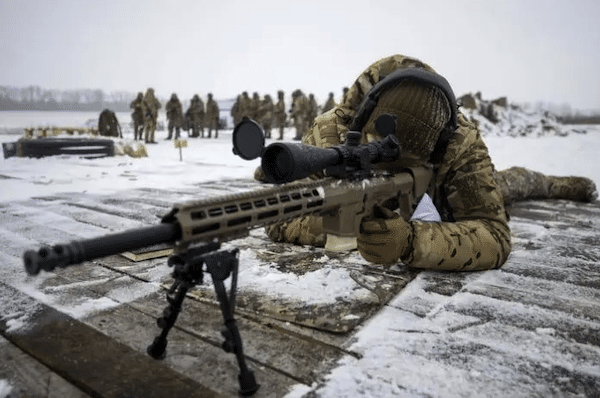On September 9th, The Economist ran a remarkable story entitled “Ukraine’s Assassination Programme: Its Agents Have Become Expert in Dark Revenge.”
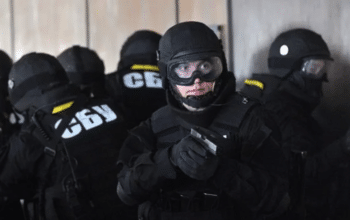
SBU operatives. [Source: euromaidanpress.com]
An unnamed SBU counter-intelligence officer is quoted as saying that it made him uncomfortable that “marginal figures” were being targeted in operations that were designed “to impress the president rather than bring victory any closer… clowns, prostitutes and jokers are a constant around the Russian government. Kill one of them, and another will appear in their place.”
The same officer noted that Ukraine’s assassination campaign was being “driven by impulse rather than logic,” and “risked exposing sources and the extent of Ukrainian infiltration into Russia,” adding that “our security services shouldn’t do things just because they can.”1
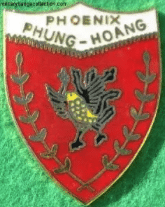
[Source: uncensoredhistory.blogspot.com]
A historical parallel can be found with the CIA’s Vietnam Phoenix Program, an assassination operation designed to liquidate civilian officials supportive of the National Liberation Front (NLF), which also got out of control and was used to resolve private disputes.
The Economist, predictably, did not mention the CIA, though we know from Vasily Prozorov, a former SBU officer who defected to Russia, that the SBU was advised by the CIA since 2014, and that CIA employees have come to the SBU’s central office to plot secret operations.
A Ukrainian hit list on the Myrotvorets website is also now advertising itself as a CIA project based in Langley, Virginia, the location of the CIA’s headquarters.
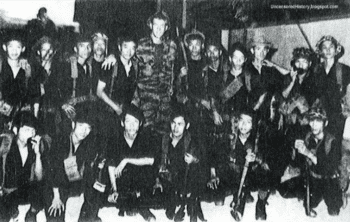
Phoenix Program adviser John Wilbur with local assassination squad. [Source: uncensoredhistory.blogspot.com]
Former SBU Director Valentyn Nalyvaichenko said that Ukraine’s leaders decided that their policy at that time of imprisoning supposed Russian collaborators was “not achieving enough. Prisons were overflowing, but few were deterred. We reluctantly came to the conclusion that we needed to eliminate terrorists.”2
Many of these “terrorists” were actually patriots who supported the legitimately elected government of Viktor Yanukovych (2010-2014), who was deposed in an illegal coup backed by far-right nationalists that worshiped pro-Nazi figures like Stepan Bandera.
They also favored close political-economic and cultural relations with Russia, which had been firmly established over generations. Many were involved in peaceful protests against the post-coup order that were violently suppressed or supported legal political parties that were banned.3
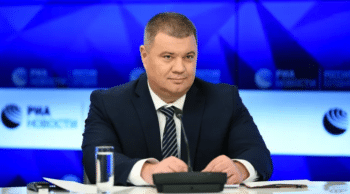
Vasily Prozorov [Source: tellerreport.com]
The rights of the people of Donetsk and Luhansk were recognized under the Minsk peace accords, which representatives of the Donetsk and Luhansk People’s Republics signed and which Russia supported, though which Ukraine viewed largely as a ruse to buy time to build up Ukraine’s military capacity to wage war, as German Chancellor Angela Merkel admitted.
On August 31, 2018, the head of the Donetsk People’s Republic, Aleksandr Zakharchenko, was murdered, in a café where he was eating, after a bomb was set off by the death squads profiled in The Economist. (Zakharchenko’s bodyguard also died and 12 people were severely injured in the blast.)
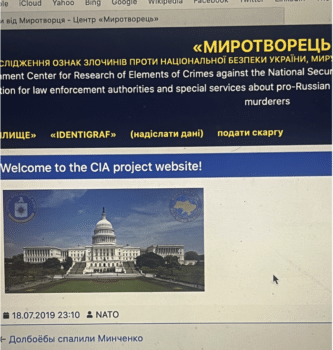
[Source: Screenshot courtesy of Jeremy Kuzmarov]
Zakharchenko’s assassination coincided with that of other notable Russian-backed commanders in the Donbas, such as Mikhail Tolstykh (aka Givi), who was murdered by a flamethrower while he was working in his office, and Arsen Pavlov (aka Motorola), whose 2016 murder in an apartment complex bombing was falsely blamed on Russia in Western media outlets.5
Ukrainian General Kyrylo Budanov was quoted in The Economist piece stating,
if you are asking about [creating a version of] Mossad. We don’t need to. It already exists.7
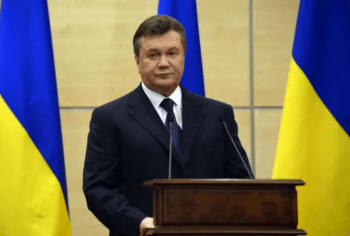
Viktor Yanukovych [Source: slate.com]
U.S. Intelligence Official Admits to Black Propaganda Operation Against Putin
The exposure of Ukraine’s assassination program in the mainstream media comes amidst the backdrop of the failure of Ukraine’s spring-summer counteroffensive, which has resulted in the demoralization of Ukraine’s army.
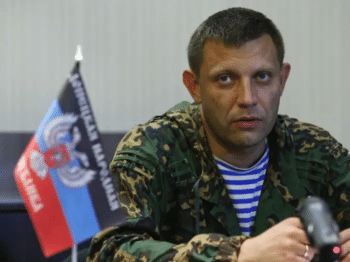
Aleksandr Zakharchenko [Source: newsweek.com]
The war is over. Russia has won. There is no Ukrainian offensive anymore, but the White House and the American media have to keep the lie going.
The same official said that while believing Vladimir Putin’s decision to start the war was “stupid,” the Biden administration’s decision to wage a proxy war in response was “also stupid. And so now we have to paint him [Putin] black, with the help of the media, in order to justify our mistake.”.
These latter comments acknowledge the existence of a black propaganda campaign against Putin by the CIA along with British intelligence that the media has been central to.
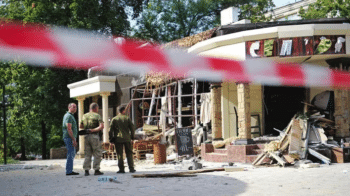
Aftermath of bombing of café where DPR leader Aleksandr Zakharchenko was killed by SBU assassins in August 2018. The Economist headline for this photo disturbingly read “A Dish Served Cold.” This was either a veiled effort at dark humor or a knock on Zakharchenko that his death was a revenge killing when it was really an aggressive act of state terrorism that was illegal under international law. [Source: economist.com]
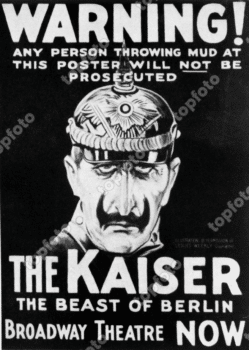
Propaganda poster denouncing the Kaiser; the Putin of 100 years ago. [Source: topfoto.co.uk]
Notes:
- ↩“Ukraine’s Assassination Programme: Its Agents Have Become Expert in Dark Revenge,” The Economist, September 9, 2023, 46.
- ↩“Ukraine’s Assassination Programme,” 46.
- ↩See Jacques Baud, Operation Z (Paris: Max Milo, 2022). Baud’s study makes clear that, if anyone deserved the designation terrorists, it was the Ukrainian Army and its assorted militias which, according to the UN, were responsible for 80% of artillery attacks against civilians in the years leading up to the launching of Russia’s Special Military Operation.
- ↩Baud, Operation Z.
- ↩The bomb that killed Pavlov, who has been featured on commemorative stamps in eastern Ukraine, was planted in the elevator in his building and detonated remotely. Another victim of the Ukraine assassination squad was Alexey Mozgovoy, an anarchist who led the Ghost Battalion and ran the town of Alchevsk, nominally part of the self-declared Luhansk People’s Republic (LPR). He was killed when his motorcade came under fire.
- ↩“Ukraine’s Assassination Programme,” 46.
- ↩“Ukraine’s Assassination Programme,” 46.

